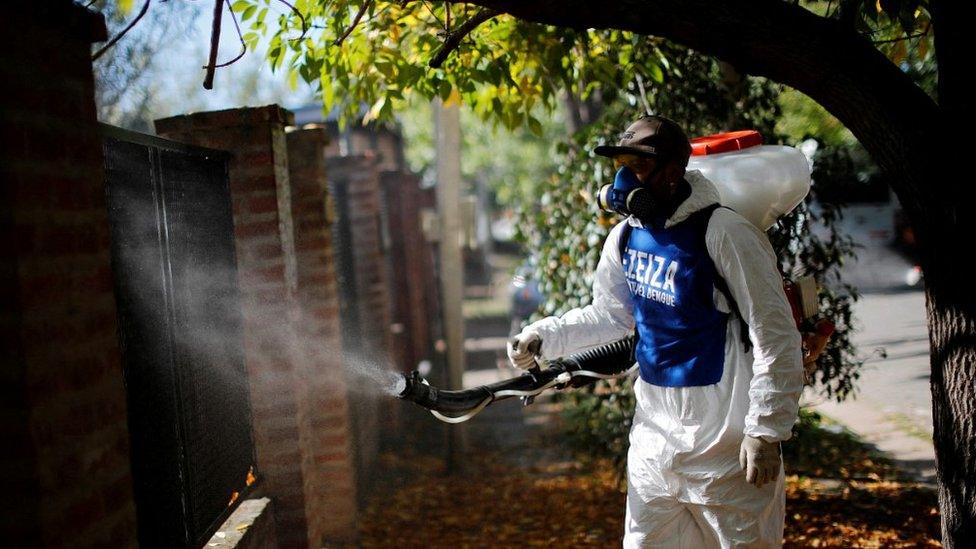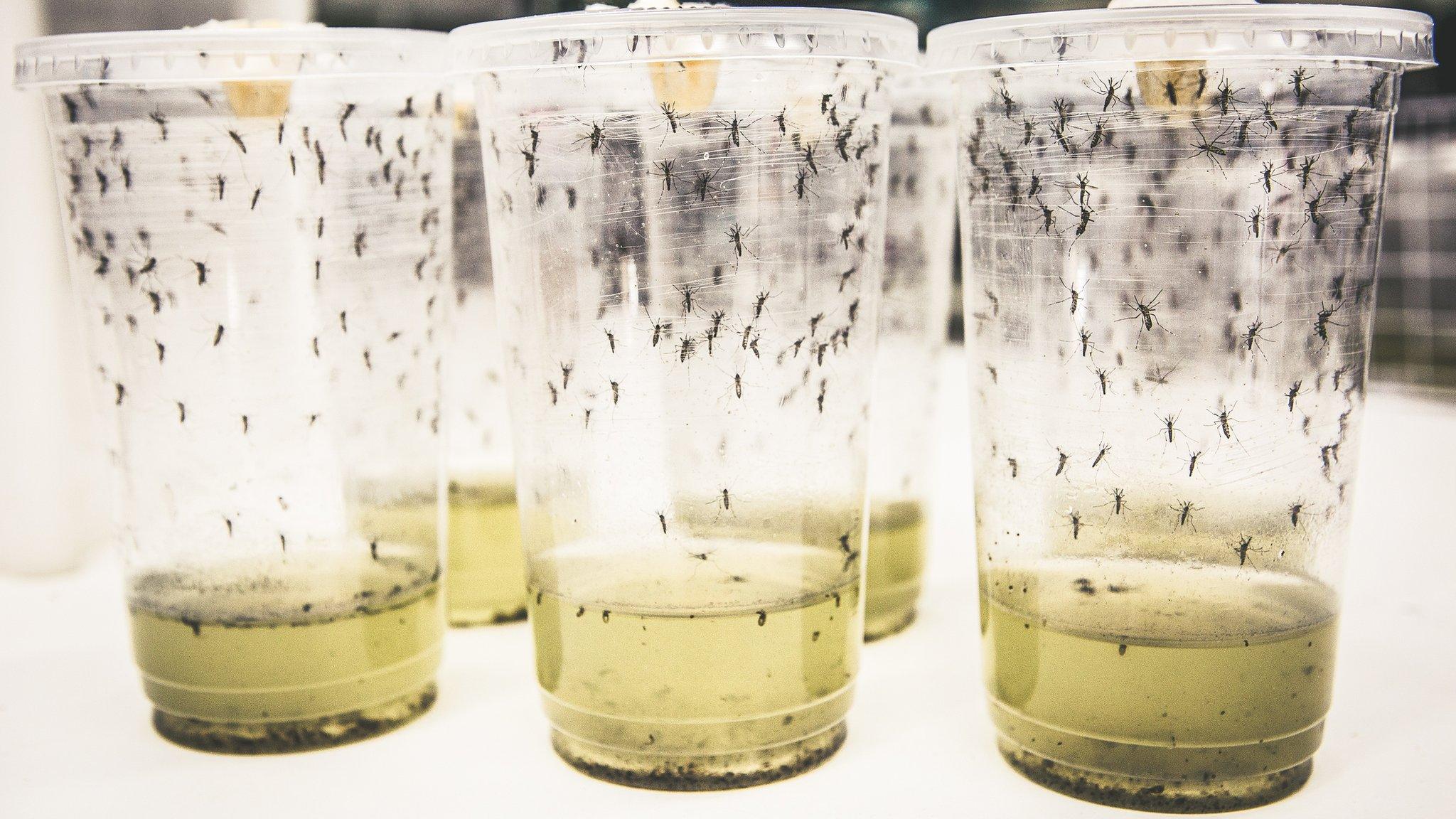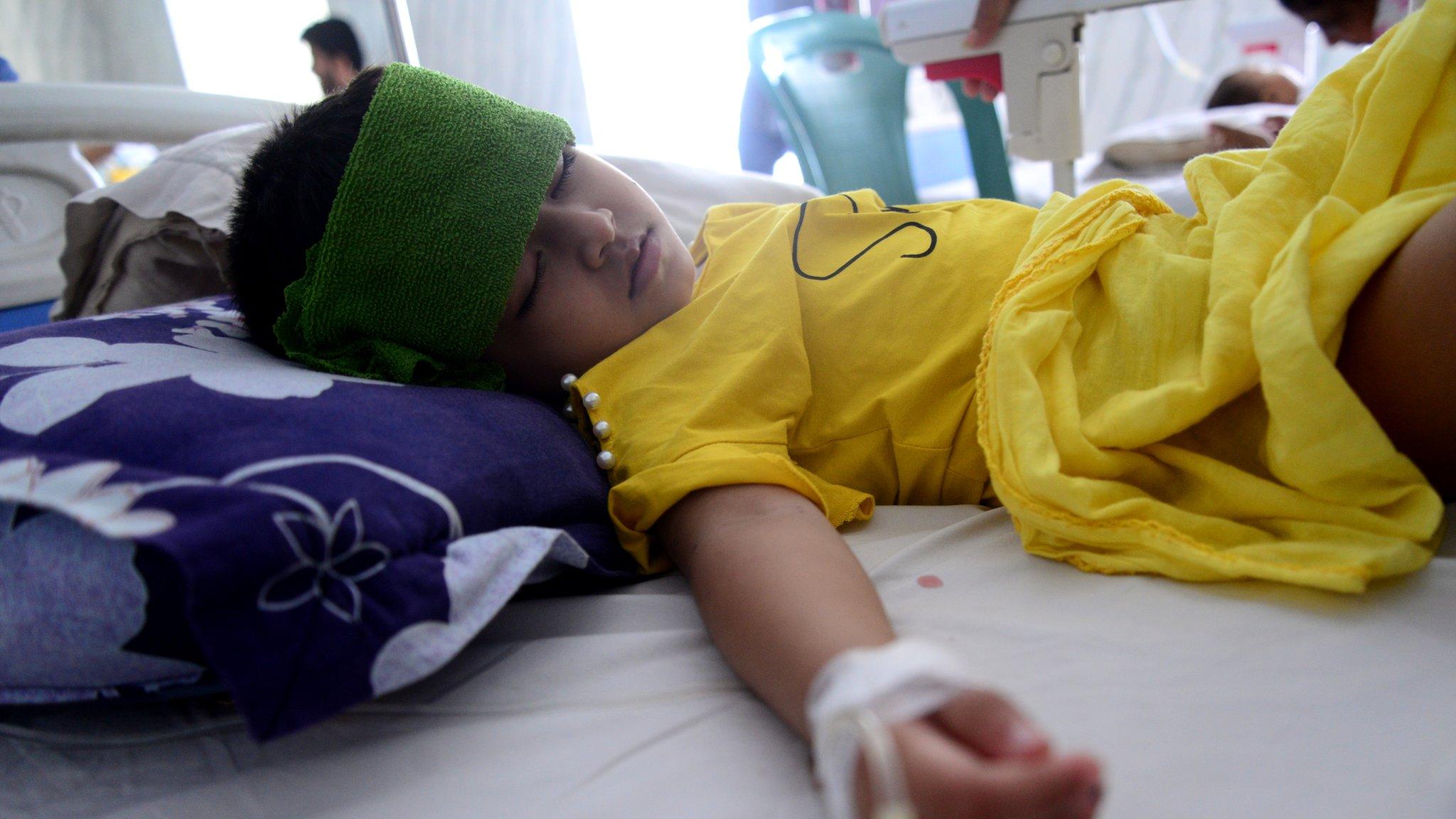Argentina dengue: Record fever outbreak kills over 40
- Published

Fumigation to stop the spread of dengue in the capital Buenos Aires
Argentina is battling a record outbreak of dengue fever, which has killed more than 40 people and infected more than 60,000, mainly in the north-west.
The infection is spread by Aedes aegypti mosquitoes, and the last big outbreak to hit Argentina was in 2020.
The health ministry says dengue cases are starting to plateau, however.
Biologists are irradiating thousands of male mosquitoes in labs, to be released later, in the hope that their offspring will be unviable because of DNA damage.
"This mosquito, due to the rise in temperature in our country and the world... is able to spread more. Their population keeps on moving further south," biologist Marianela Garcia Alba said, quoted by Reuters news agency.
The aim is to make the mosquitoes that have been exposed to radiation the dominant type, to curb the spread of dengue, she added.
The north-western provinces of Salta, Tucumán and Jujuy, near Argentina's borders with Chile and Bolivia, have recorded the highest numbers of deaths.
Dengue symptoms include fever, headaches, nausea and aching joints.
The health ministry has urged people to step up anti-mosquito measures, including mosquito netting on doorways and windows, use of insect repellent and removal of any water containers that may act as breeding grounds.
Related topics
- Published10 June 2021

- Published22 November 2019
